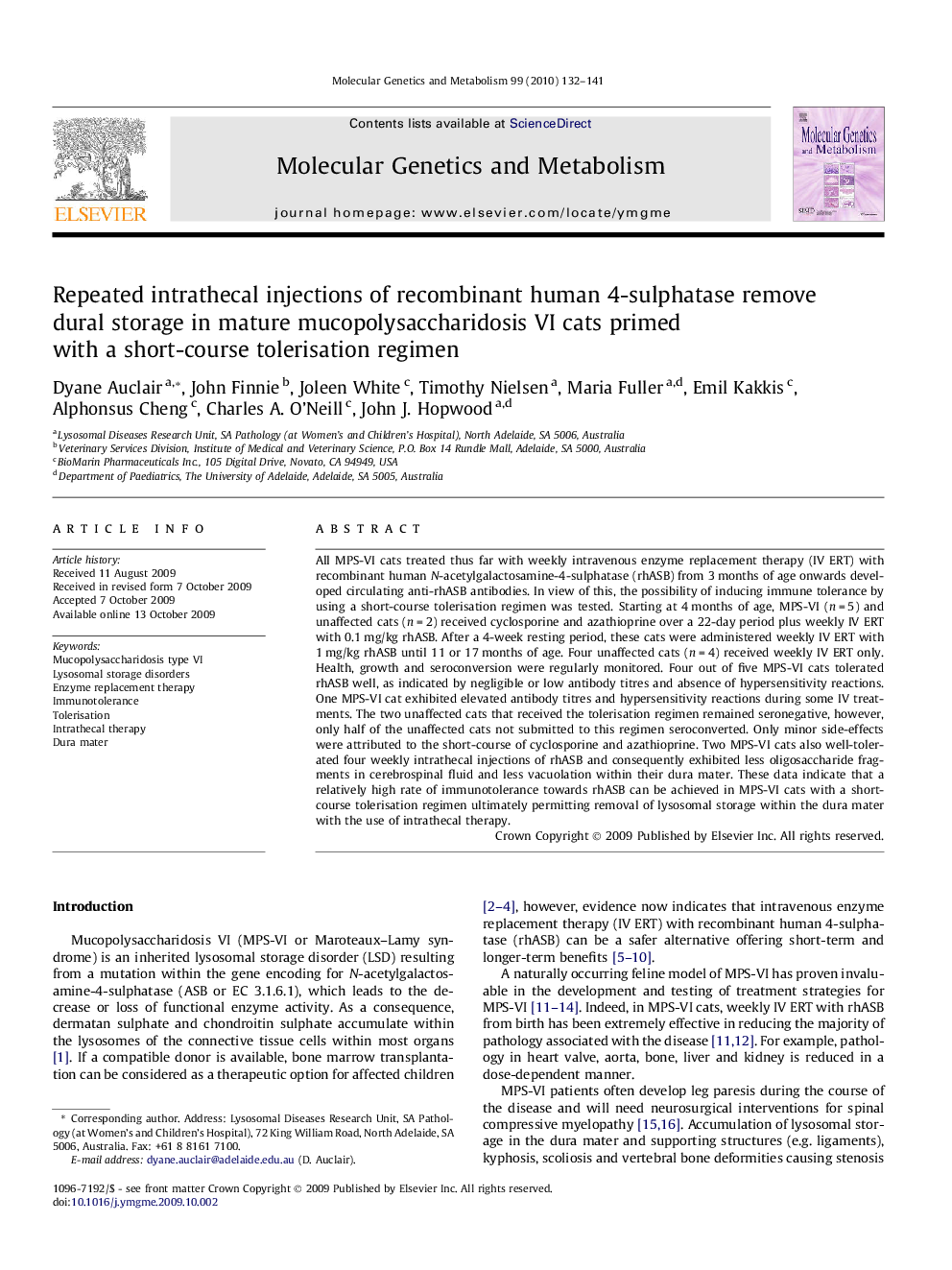| Article ID | Journal | Published Year | Pages | File Type |
|---|---|---|---|---|
| 1999654 | Molecular Genetics and Metabolism | 2010 | 10 Pages |
All MPS-VI cats treated thus far with weekly intravenous enzyme replacement therapy (IV ERT) with recombinant human N-acetylgalactosamine-4-sulphatase (rhASB) from 3 months of age onwards developed circulating anti-rhASB antibodies. In view of this, the possibility of inducing immune tolerance by using a short-course tolerisation regimen was tested. Starting at 4 months of age, MPS-VI (n = 5) and unaffected cats (n = 2) received cyclosporine and azathioprine over a 22-day period plus weekly IV ERT with 0.1 mg/kg rhASB. After a 4-week resting period, these cats were administered weekly IV ERT with 1 mg/kg rhASB until 11 or 17 months of age. Four unaffected cats (n = 4) received weekly IV ERT only. Health, growth and seroconversion were regularly monitored. Four out of five MPS-VI cats tolerated rhASB well, as indicated by negligible or low antibody titres and absence of hypersensitivity reactions. One MPS-VI cat exhibited elevated antibody titres and hypersensitivity reactions during some IV treatments. The two unaffected cats that received the tolerisation regimen remained seronegative, however, only half of the unaffected cats not submitted to this regimen seroconverted. Only minor side-effects were attributed to the short-course of cyclosporine and azathioprine. Two MPS-VI cats also well-tolerated four weekly intrathecal injections of rhASB and consequently exhibited less oligosaccharide fragments in cerebrospinal fluid and less vacuolation within their dura mater. These data indicate that a relatively high rate of immunotolerance towards rhASB can be achieved in MPS-VI cats with a short-course tolerisation regimen ultimately permitting removal of lysosomal storage within the dura mater with the use of intrathecal therapy.
